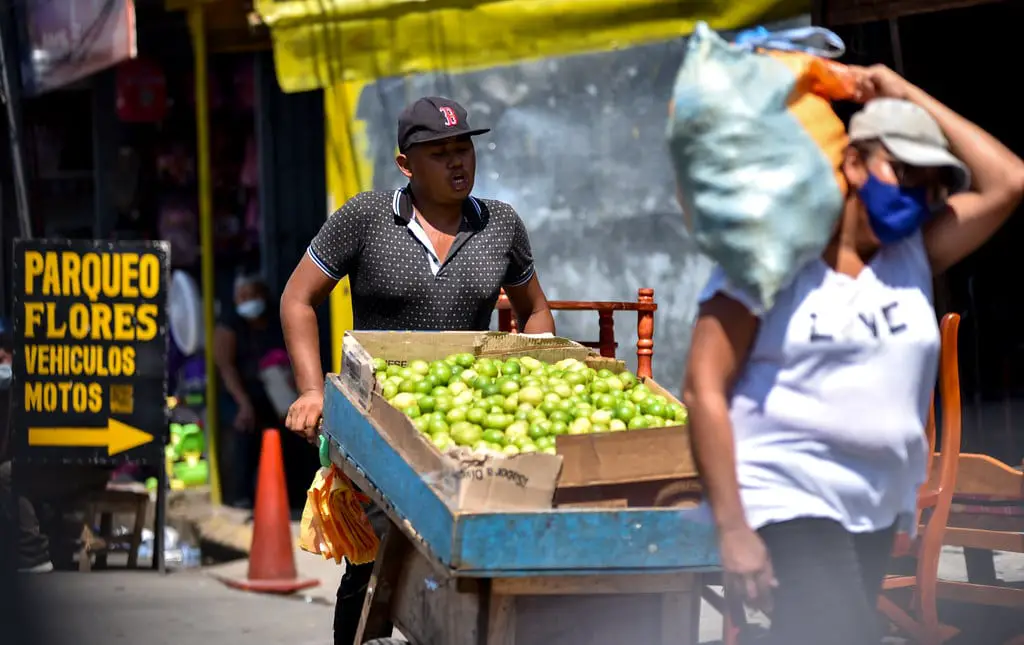“The technical mission of the International Monetary Fund (IMF) has been accommodating with the Government of Nicaragua,” says economist Marco Aurelio Peña, who describes the country’s macroeconomic performance as “good” for adopting “quite prudent macroeconomic policies that aim at sustainability and fiscal responsibility, as well as for managing many macro variables in a context of economic recovery, after a three-year recession”.
On November 16, 2022, an IMF mission headed by Alina Carare, who spent a week in Managua, issued a report full of praise for the Government of Nicaragua. More than two months later, the Fund’s Board released a revised version of that report, removing some of the praise — but not all — so most of the criticism still stands.
During the interview for the Esta Noche program, which is broadcast online to circumvent the censorship of Daniel Ortega and Rosario Murillo, the expert recalled that, beyond the growth forecasts for the gross domestic product (GDP), around 3.0% , what the Fund is not seeing is the great mass of hungry Nicaraguans who can only make plans for the day to day, with no hope of seeing any kind of material progress in their lives.
In Nicaragua there is a reality of contrasts where, on the one hand, macroeconomically people are told that they are doing well and that the country is on the right track, but microeconomically, “people feel, think, observe, and say that it is going wrong, that it is wrong, and that the outlook is completely uncertain”, contrasted the expert.
He says it thinking about recent survey results, in which six out of ten young Nicaraguans -that is, under 35 years of age- say they would leave if they could leave. That same proportion identifies unemployment as the main problem in their home. It is no coincidence that at least six out of ten Nicaraguans say that the country is headed in the wrong direction.
The IMF receives official information from the Government of Nicaragua, so it only knows the economic and social statistics that it receives, without accessing other independent sources of consultation, such as Economic Reports and investigations of the Nicaraguan Foundation for Economic and Social Development (Funides), or those of the International Foundation for the Global Economic Challenge (Fideg), in terms of poverty.
“By not having these organizations -because they were arbitrarily legally canceled- the IMF receives only one version, which paints it as a macroeconomically stable country and with macro flow variables in recovery, but that ‘x-ray’ does not reflect the pressing economic reality of Nicaraguans on a day-to-day basis”, he warned.
Nicaragua, country of contrasts
“The growth of 4% last year is exponentially benefiting subsectors and even large businesses, but it does not automatically generate social well-being and human development for the majority of people who continue to resent that economic conditions do not favor them” recalling that the The inflation rate – which was 11.6% in 2022 – “is galloping inflation, it is double-digit inflation.”
Peña recalled that such a “complacent” valuation facilitates access to “concessional loans, development-oriented credits, international development banks, and any other financing to pay for government public infrastructure works, or development programs.”
It’s not just measuring GDP
By recommending looking beyond what is indicated by the GDP growth indicator for the production of goods and services, Peña agrees with the IMF, which recommends improving the business climate, governance and transparency, referring in this case, how has Nicaragua’s position deteriorated in the ranking of the Doing Businesswhich is prepared with data from the World Bank.
In 2012, the country was ranked 119 out of 190 countries, a position that was repeated in 2014, with a score of 58.09. In 2019, Nicaragua fell to number 142 with a score of 54.40, which means that “either things deteriorated internally, or the other countries did well,” said the professor, also.
Another more useful option is social progress, “an indicator that brings us closer to people’s quality of life and has a lot of prestige”, as indicated by the fact that it was used by Funides and INCAE. In 2014, Nicaragua obtained a score of 62.33 to rank 74th (out of 132 countries) in the Social Progress Index. In 2021, the country had a similar score (62.45 points), but dropped to 108th place, out of 168 countries.
“In terms of social progress, Nicaragua deteriorated from 2014 to 2021. Social progress has to do with quality of life, with access to basic services and the social aspect of the economy,” the expert explained.
Peña also recalled that in 2021, “Nicaragua was rated as the most corrupt country in Central America, and one of the most corrupt in the region, according to Transparency International, only surpassed by Venezuela,” reaching number 164 out of 180 countries. That same year, we were considered “the least peaceful country in Central America in times of peace.”
The reference to ‘peacetime’ should be understood as the absence of war, of an armed conflict between contending sides, the absence of insurgent groups or revolutionary groups, according to the Institute of Peace and Economy. Finally, he cited figures from the Inter-American Dialogue, which depict the “social hemorrhage”, which represents Nicaraguan emigrationto ask whether it makes sense for people to choose take big risks to leave a country that both the IMF and the Government of Nicaragua paint “in recovery.”
“Economic growth is necessary but not sufficient for development,” he stated, explaining that when talking about development, he refers to human development, “which has to do with freedoms and capabilities in a democratic environment, which Nicaragua does not comply with,” as well as to economic development, wealth redistribution, and sustainable development that slows down the impact on the environment and degrades natural resources.


















